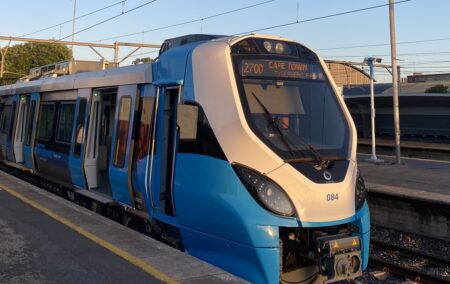After court action, threats of an intergovernmental dispute and more than a year of negotiations, the Passenger Rail Agency of SA (PRASA) has finally signed a a service level plan (SLP) with the City of Cape Town, which could lay the foundation for the city taking over the management of passenger rail across the metropole.
In terms of the SLP, PRASA must regularly report to the city, with the city exercising oversight over commitments to revitalise stations, introduce more train sets, recommission services, and increase the number of daily passengers and train trips.
The city also commits to providing the municipal services needed to support and enhance passenger rail, encouraging transit-orientated development along rail corridors and expediting permits through the city’s services and development planning departments.
GroundUp reports that, while the SLP was being negotiated, the city conducted its own feasibility study for managing the passenger rail network. The recommendations based on this study were passed by the council on the same day, 5 December, that the SLP was signed.
Mayor Geordin Hill-Lewis said: “This is a big step towards improving the quality and reliability of the service through a legally binding agreement, and I am very pleased that we managed to get this finalised this year.”
He added: “Taking charge of Metrorail is especially important for lower-income households, who would save an estimated R932m a year if trains were working as they should.”
According to GroundUp, rail activist organisation UniteBehind said that while the SLP “marks progress”, it fell short of what was needed for PRASA to fully meet its constitutional and statutory obligations to commuters.
“Despite PRASA having had over a year to finalise it, the plan lacks enforceable commitments, timelines or measures that would enable it to function as a road map for improving commuter rail services,” said UniteBehind executive director Zukie Vuka.
[Image: PRASA, https://commons.wikimedia.org/w/index.php?curid=137760669]

